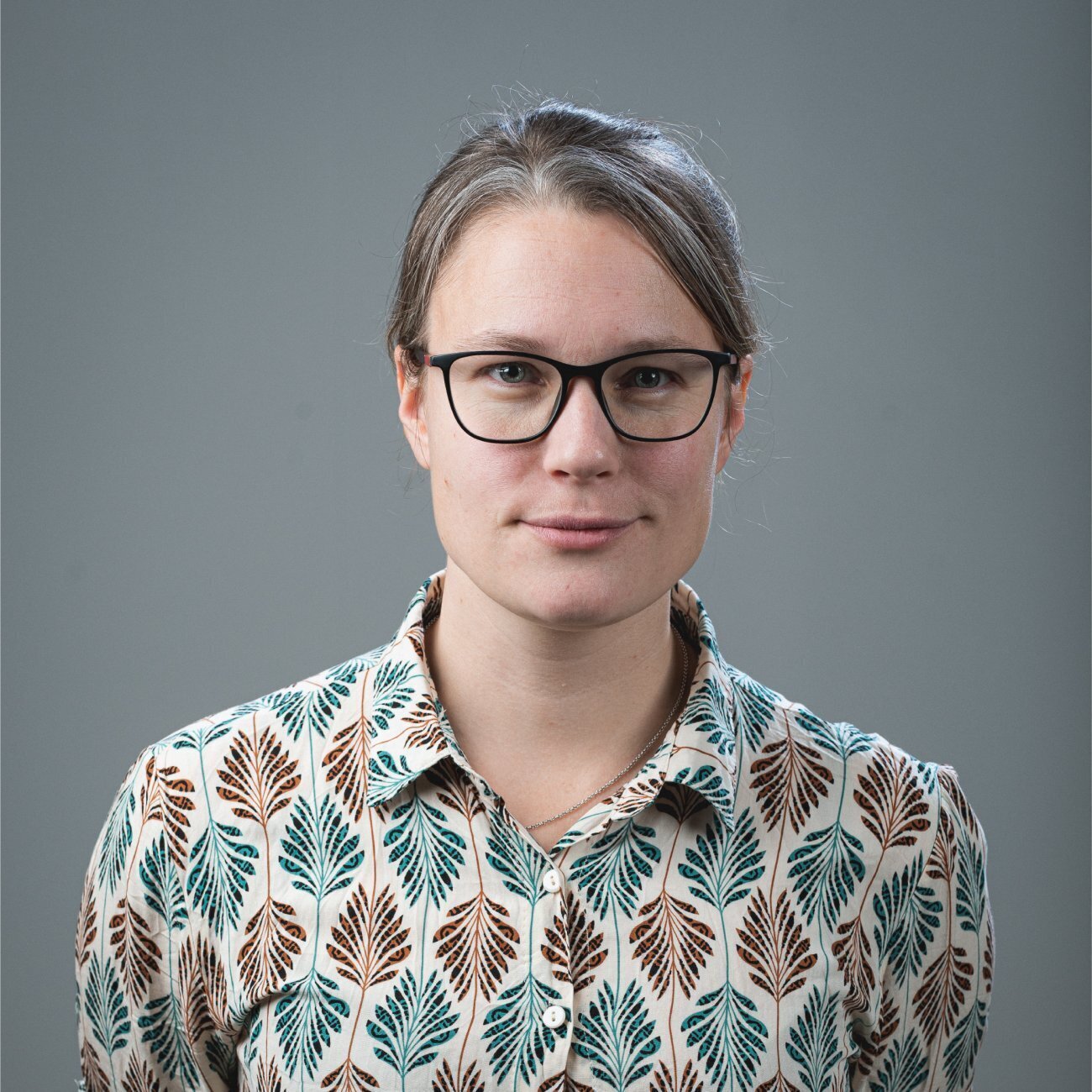Research group of microbiome
The human digestive tract is colonized by many very different microorganisms that play a crucial role in shaping our health and influencing the functioning of the immune system, metabolism, and nervous system. The composition and functioning of the microbiome are influenced by many different factors (gender, age, diet, genetics, living environment, health, etc.), and understanding these relationships provides important knowledge for microbiome-based studies.
Our research group is engaged in studying the connections between the microbiome and health, in the course of which we try to assess the suitability of the microbiome for preventing or early diagnosing diseases, find connections between the microbiome and different stages of diseases, and also study the impact of the microbiome on the functioning of drugs.

In 2017, the microbiome research group established the Estonian Microbiome Cohort (EstMB), which is a nationwide initiative that includes stool and oral samples from over 2500 participants of the Estonian Biobank cohort, supplemented by regular links to national registries and hospital databases. Deep phenotyping and linking to electronic health records allow the study of microbiome-health associations in both retrospective and prospective settings. The research interests of the microbiome research group include, among others, establishing microbiome-based tools for assessing the risk of disease onset and studying the long-term effects of drug usage on the microbiome and health.
Contact: elin.org@ut.ee CV ORCID Google Scholar
Our people

Oliver Aasmets
PhD Biomedicine
Research Fellow
Research interests: drug-microbiome interactions, disease risk assessment, statistical modeling
PhD thesis: The importance of microbiome in human health

Kreete Lüll
PhD Gene Technology
Research Fellow
Research interests: the role of microbiome in female health, microbiome and autoimmune diseases
PhD thesis: Investigating the relationships between human microbiome, host factors and female health

Kertu Liis Krigul
PhD Gene Technology
Specialist
Research interests: Estonian Microbiome, The effects of antibiotics use on the microbiome and health
PhD thesis: „The gut microbiome at the interface of human health and disease“

Research Fellow
Research interests: The interplay between microbiome, blood metabolites and diet; statistical modelling and methodology
PhD thesis: Diet, blood metabolites, and health

Reidar Andreson
PhD Bioinformatics
Research Fellow
Research Interests: Microbiome Bioinformatics, computational support
PhD thesis: Methods and software for predicting PCR failure rate in large genomes

Kateryna Pantiukh
MSc Cytology and histology / Nanobiotechnology
Junior Research Fellow
Research interests: Metagenome Assembled Genomes (MAGs), integration of complex molecular data
Supervisors: Elin Org

Annabel Klemets
MSc Biomedicine
Junior Research Fellow
Supervisors: Oliver Aasmets, Elin Org, Vallo Tillmann
Research interests: Longitudinal changes in the microbiome, early life microbiome
Supervisors: Oliver Aasmets, Vallo Tillmann, Elin Org

Andri Jääger
MD, general surgeon
Research interests: Surgical oncology, role of microbiome and lifestyle in colorectal cancer.
Supervisors: Jaan Soplepmann, Elin Org, Heigo Reima

Annabel Toom
BSc Genetic engineering
Master’s student
Supervisors: Oliver Aasmets, Elin Org
BSc thesis: “Pseudouridine synthase TruA participation in mutation processes of soil bacterium Pseudomonas putida KT2440” (Supervisors Signe Saumaa, Heili Ilves)
Alumni
Madis Jaagura, PhD
- Group-related publication(s): “Comorbidities confound metabolomics studies of human disease”
Seungbaek Lee, PhD (visiting PhD student)
- Supervisors: Andres Salumets, Elin Org, Terhi Piltonen, Riikka K. Arffman
- Thesis title: “Mining biomarkers for infertility-associated conditions. Studies on polycystic ovary syndrome and recurrent implantation failure through microbiome and AI-based approaches”
Lisann Adamson, MSc
- Supervisors: Elin Org, Annabel Klemets
- Thesis title: "Differences in gut microbiota in patients with inflammatory bowel disease"
Linda Sootak, BSc
- Supervisors: Kertu Liis Krigul, Elin Org
- Thesis title: "Associations between the oral microbiome and colorectal cancer"
Claudia Maria Ruhno, BSc
- Supervisors: Kertu Liis Krigul, Elin Org
- Research interests: Using mouse model to study the human gut microbiome
- Email: claudia.maria.ruhno@ut.ee
Johanna Toodu, BSc
- Supervisor: Kertu Liis Krigul
- Thesis title: “Possibilities for microbiome analysis from fecal occult blood tests used in the screening of colorectal cancer in Estonia”
Valida Kazimova, BSc
- Supervisors: Kertu Liis Krigul, Ingrid Reppo, Elin Org
- Research interests: Microbiome-drug interactions in Type II Diabetes
- Email: kazimovavalida01@gmail.com
Jennifer Neumaier, MSc
- Supervisors: Oliver Aasmets, Elin Org
- Thesis title: Benchmarking Machine Learning performances with Microbiome Data
- Email: jennifer.neumaier@t-online.de
Cheung Wai (Alex) Chan, MSc
- Supervisors: Oliver Aasmets
- Thesis title: Gut microbiome in adjustment disorders
- Email: cheung.wai.chan@ut.ee
Kristina Muhu, MSc
- Supervisors: Oliver Aasmets
- Thesis title: Prediction models based on log-ratio transformations for diagnosing colorectal cancer
Triin Bulõgina, BSc
- Supervisors: Oliver Aasmets
- Thesis title: Colorectal cancer prediction models using gut microbiome as a predictor
Johana Värv (Koppel), MSc
- Supervisor: Elin Org
- Thesis title: “Soolestiku mikroobide vahendusel moodustuv metaboliit trimetülamiin N-oksiid (TMAO) ja selle seosed tervisenäitajatega Soome populatsioonis”
Overview of the ongoing projects
In 2017, we started collecting oral and stool microbiome samples from the Estonian population in order to investigate the role of the host microbiome in health and disease. The study participants were selected from the Estonian Biobank.

Sample types:
- 2509 Stool samples; 328 samples with a second measurement ~ 4.5 years later
- 2509 Oral samples
- 2509 Plasma samples
Data for analysis:
- Stool metagenomics data (avg. ~20M reads per person + deeper sequencing ~60M reads per person)
- Metagenome assembled genomes, i.e. MAGs (Estonian reference including >80 000 assembled genomes)
- Continuous linkings to electronic health records (EHRs) - diseases, medication usage, medical procedures
- Self-reported questionnaires (health, environmental/lifestyle data, mental health)
- Nightingale NMR metabolomics
- Host genotypes
Research interest:
- Prospective disease risk prediction
- Metagenome-assembled genomes, i.e. MAGs (Bacteria, Archaea) and functional analysis
- Developing statistical methodology - improving cross-cohort replication, causal inference
In collaboration with partners from the Tartu University Faculty of Medicine, Institute of Clinical Medicine (Prof. Margus Lember, Prof. Kalle Kisand), the Gastroenterology Department of Internal Medicine Clinic of Tartu University Hospital (Assoc. Prof. Riina Salupere, Dr Hendrik Laja, Dr Karin Kull), and the Department of Surgical and Gynecological Oncology of the Surgery Clinic of Tartu University Hospital (Dr Jaan Soplepmann, Dr Heigo Reima, Dr Taavi Põdramägi, Dr Andri Jääger), we investigate the role of the gut microbiome in the development of colorectal cancer (CRC). We currently collect samples from individuals who participate in the national CRC screening program in Estonia and from individuals who have been diagnosed with colorectal cancer and its pre-cancerous stages. The overall aim of the project is to find new microbiome-based biomarkers that would allow earlier and more accurate detection of colon cancer and contribute to the development of new diagnostic methods for CRC.

Sample types:
- Oral samples
- Different stool samples (FIT tubes, stabilisation buffer, Fresh-frozen),
- Blood
- Biopsy samples (polyp tissue, healthy epithelial tissue, tumour tissue)
Data and samples for analysis:
- metagenomic and 16S rRNA gene sequencing,
- DNA, RNA
- histology data,
- Self-reported health questionnaire
Research interest:
- Identification of cancer-related signals in the microbiome of various sample sites
- Identification of microbiome signatures in pre-cancerous stages
Gut microbiome alterations have been clearly linked with inflammatory human diseases. Multiple reports have shown that patients with ulcerative colitis have impaired intestinal barrier (so-called “leaky gut”), and bacteria may translocate into circulation via the gut-blood-liver axis. Moreover, recent studies have shown that blood has unique circulating microbial signatures in certain diseases. In collaboration with The Internal Medicine Clinic of Tartu University Hospital and The Gastroenterology department (Assoc. Prof. Riina Salupere, Dr Hendrik Laja), we would like to determine circulating blood and stool microbiome signatures in Ulcerative colitis, Crohn’s disease and Primary Sclerosing Cholangitis and evaluate the diagnostic and prognostic value of these biomarkers.
Sample types:
- >200 stool samples (>100 cases + >100 controls from EstMB)
Data for analysis:
- Stool metagenomics data
- Stool 16S rRNA gene sequencing data
- Self-reported questionnaires (health, environmental/lifestyle data)
Research interest:
Identification of IBD-related signals in the microbiome
Rheumatic diseases - ENDOTARGET study (Populational cohort). Funded by H2020 (2023-2027)
Rheumatic diseases (RDs) affect more than 40% of Europe’s population and cause significant disability, pain, reduced lifespan and a very high economic burden (~240B€/year due to rheumatic and musculoskeletal disease in Europe). The study, including numerous international partners, explores the relationship between gut microbiota, gut permeability, and systemic endotoxemia with a special focus on the three most abundant rheumatic diseases (RDs): osteoarthritis, rheumatoid arthritis and spondylarthritis.
Statin treatment (Interventional trial) TeamPerMed project
Research evidence has shown that the bacterial community in our gut can significantly influence the effectiveness of statin therapy, including both response to treatment and side effects. This study aims to determine the microbial community in the gut and evaluate the interactions between microbes and statins. Analyzing intestinal microbes allows us to investigate two main aspects: firstly, how the microbial community of the gut affects the effectiveness of statin treatment (the suitability of the drug and the occurrence of side effects); and secondly, how the use of statins can, in turn, affect the microbial community of the gut. During the study, we collect samples of the microbiome from different time points, which will allow us to monitor changes in your microbiome community over a longer period and, more precisely, investigate the relationship between microbes and other health parameters collected in the study.
Parkinson’s disease (Clinical cohort, collaboration with Dr Toomas Toomosoo)
Parkinson's is a common neurological disease which directly affects around 1.2 million people in Europe. New studies strongly suggest a link between the gut microbiome and Parkinson's disease. The study aims to identify Parkinson-related microbiome signatures in the stool and evaluate the diagnostic and prognostic value of these biomarkers in relation to environmental factors.
Funding
- Estonian Research Council grants PUT 1371 (2017-2021), PRG1414 (2022-2026)
- European Commission grant DISCERN (2023-2027)
- European Commission grant ENDOTARGET (2023-2027)
- EMBO Installation grant 3573 (2018-2024)
- European Regional Development Fund Project No. 15-0012 GENTRANSMED
- Estonian Center of Genomics/Roadmap II project No 16-0125
- Biocodex Foundation Grant (2022-2024)
- The European Economic Area (EEA) and Norwegian Financial Mechanisms (2021-2024)
Major publications
- A novel framework for assessing causal effect of microbiome on health: long-term antibiotic usage as an instrument. (2025)
Authors: Taba et al.
Journal: Gut Microbes
Read the article - Effects of data transformation and model selection on feature importance in microbiome classification data. (2025)
Authors: Karwowska & Aasmets et al.
Journal: Microbiome
Read the article - A history of repeated antibiotic usage leads to microbiota-dependent mucus defects (2024)
Authors: Krigul & Feeney et al.
Journal: Gut Microbes
Read the article - Evaluating the clinical relevance of the enterotypes in the Estonian microbiome cohort (2022)
Authors: Aasmets, O., Krigul, K. L., Org, E.
Frontiers in Genetics
Read the article - Gut metagenome associations with extensive digital health data in a volunteer-based Estonian microbiome cohort (2022)
Authors: Aasmets, O., Krigul, K.L., Lüll, K., Metspalu, A., Org, E.
Journal: Nature Communications
Read the article - Differences in microbial profile of endometrial fluid and tissue samples in women with in vitro fertilization failure are driven by Lactobacillus abundance (2022)
Authors: Lüll, K., Saare, M., Peters, M., Kakhiani, E., Zhdanova, A., Salumets, A., Boyarsky, K., Org, E.
Journal: Acta Obstetricia et Gynecologica Scandinavica
Read the article - Using fecal immunochemical tubes for the analysis of the gut microbiome has the potential to improve colorectal cancer screening (2021)
Authors: Krigul, K.L., Aasmets, O., Lüll, K., Org, T., Org, E.
Journal: Scientific Reports
Read the article - Large-scale association analyses identify host factors influencing human gut microbiome composition (2021)
Authors: Kurilshikov, A., Medina-Gomez, C., Bacigalupe, R. jt.
Journal: Nature Genetics
Read the article - Machine Learning Reveals Time-Varying Microbial Predictors with Complex Effects on Glucose Regulation (2021)
Authors: Oliver Aasmets, O., Lüll, K., Lang, J.M., Pan, C., Kuusisto, J., Fischer, K., Laakso, M., Lusis, A.J., Org, E.
Journal: mSystems
Read the article - The Gut Microbiome in Polycystic Ovary Syndrome and Its Association with Metabolic Traits (2020)
Authors: Lüll, K., Arffman, R.K., Sola-Leyva, A., Molina, N.M, Aasmets, O., Herzig, K.-H., Plaza-Díaz, J., Franks, S., Morin-Papunen, L., Tapanainen, J.S., Salumets, A., Altmäe, S., Piltonen, T.T., Org, E.
Journal: The Journal of Clinical Endocrinology & Metabolism
Read the article - Relationships between gut microbiota, plasma metabolites, and metabolic syndrome traits in the METSIM cohort (2017)
Authors: Org, E., Blum, Y., Kasela, S., Mehrabian, M., Kuusisto, J., Kangas, A. J., Lusis, A. J. jt.
Journal: Genome Biology
Read the article
Collaborations
- Faecal microbial load is a major determinant of gut microbiome variation and a confounder for disease associations. (2025)
Authors: Nishijima et al.
Journal: Cell
Read the article - Gut microbiome in endometriosis: a cohort study on 1000 individuals. (2024).
Authors: Pérez-Prieto et al.
Journal: BMC medicine
Read the article - Large-scale association analyses identify host factors influencing human gut microbiome composition. (2021).
Authors: Kurilshikov et al.
Journal: Nature Genetics
Read the article
- A novel framework for assessing causal effect of microbiome on health: long-term antibiotic usage as an instrument. (2025). Taba et al. Gut Microbes.
- Faecal microbial load is a major determinant of gut microbiome variation and a confounder for disease associations. (2025). Nishijima et al. Cell.
- Effects of data transformation and model selection on feature importance in microbiome classification data. (2025). Karwowska & Aasmets et al. Microbiome.
- The reproductive tract microbiome in women with polycystic ovary syndrome and across different menstrual cycle phases. (2025). Lee & Aasmets et al. Human Reproduction.
- A history of repeated antibiotic usage leads to microbiota-dependent mucus defects (2024). Krigul & Feeney et al. Gut microbes.
- Association of Accelerometer‐Determined Physical Activity and Sedentary Behavior With the Gut Microbiome in Middle‐Aged Women: A Compositional Data Approach. (2024). Pérez-Prieto et al. Scandinavian Journal of Medicine & Science in Sports.
- Gut microbiome in endometriosis: a cohort study on 1000 individuals. (2024). Pérez-Prieto et al. BMC medicine.
- Comorbidities confound metabolomics studies of human disease. (2024). Jaagura et al. Scientific Reports.
- Gut bacteriome and mood disorders in women with PCOS. (2024). Lee et al. Human Reproduction.
- Cell-Free Microbial DNA Analysis: Effects of Blood Plasma and Serum Quantity, Biobanking Protocols, and Isolation Kits. (2024). Nikitina et al. Biopreservation and Biobanking.
- A toolbox of machine learning software to support microbiome analysis (2023). Marcos-Zambrano et al. Frontiers in microbiology.
- Uterine Microbiome: Does the Sampling Technique Matter?. (2023). Lüll & Org Seminars in Reproductive Medicine.
- Gut metagenome associations with extensive digital health data in a volunteer-based Estonian microbiome cohort. (2022). Aasmets & Krigul et al. Nature Communications.
- Evaluating the clinical relevance of the enterotypes in the Estonian microbiome cohort. (2022). Aasmets et al. Frontiers in Genetics.
- Differences in microbial profile of endometrial fluid and tissue samples in women with in vitro fertilization failure are driven by Lactobacillus abundance (2022). Lüll et al. Acta Obstetricia et Gynecologica Scandinavica
- Machine Learning Reveals Time-Varying Microbial Predictors with Complex Effects on Glucose Regulation. (2021). Aasmets et al. mSystems.
- Using fecal immunochemical tubes for the analysis of the gut microbiome has the potential to improve colorectal cancer screening. (2021). Krigul et al. Scientific Reports.
- Large-scale association analyses identify host factors influencing human gut microbiome composition. (2021). Kurilshikov et al. Nature Genetics.
- Applications of Machine Learning in Human Microbiome Studies: A Review on Feature Selection, Biomarker Identification, Disease Prediction and Treatment. (2021). Marcos-Zambrano et al. Frontiers in Microbiology
- The gut microbiome in polycystic ovary syndrome and its association with metabolic traits. (2021). Lüll et al. The Journal of Clinical Endocrinology & Metabolism.
- Antibiotic usage can damage the protective mucus layer in the gut (Popular science article)
- Hidden bacteria may shape your health! (Popular science article)
- Gut metagenome associations with extensive digital health data (Microbiome Virtual International Forum Conference presentation about Estonian Microbiome Project)
- TIMESPAN Keynote: The impact of microbiota on host diseases and drugs by Prof. Elin Org (TIMESPAN's General Assembly meeting in 2023)
- Small country with a great potential for microbiome studies (Popular science article)
- "International researchers see the opportunity we have here": Meet Elin Org, Associate Professor of Genomics and Microbiomics, University of Tartu, and EMBO Installation Grantee (Article by EMBO Communications)
- The gut microbiome can predict changes in glucose regulation (Popular science article)
- Fecal microbiome predicts treatment response after the initiation of semaglutide or empagliflozin uptake (Microbiome Virtual International Forum Conference presentation)



